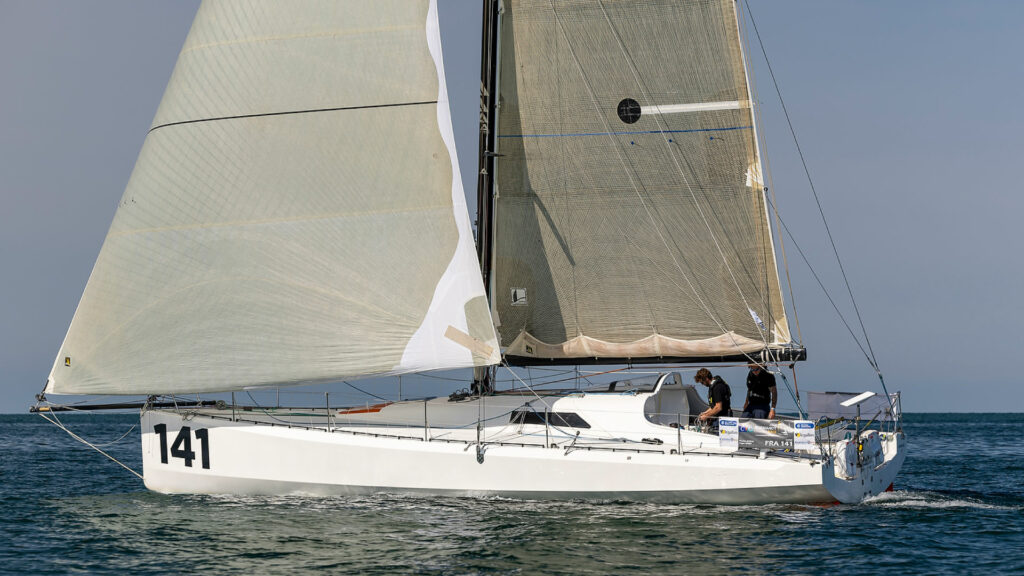
After several seasons in a Mini 6.50, you discovered Class40. How did you experience the change of boat and your arrival in Class40?
My arrival in Class40 was pretty straightforward. There’s a great atmosphere and a lot of mutual support with the other skippers, and it’s always really nice when that happens. There’s a bit of the Mini spirit, even though Class40 is more professional. Class40 is like a big Mini 6.50 with ballast tanks! I made a few mistakes in the first few races and broke some equipment, but I’m starting to get the hang of the boat. I’m going to make a few optimisations this winter, which I hope will enable me to be better next year!
How are you feeling after this busy season, particularly with your first 4 races in Class40?
I’m feeling great. Above all, I’m very happy to have been able to sail so much this season. The boat is really great, even if she could do with some new sails to make her a bit faster and quicker, but overall the boat is really nice.
All these races have allowed me to gain experience on the boat and to test it in different configurations. My search for partners is taking up a lot of my time, which means I have to be involved in a bit of everything at the same time, which wasn’t necessarily easy or relaxing.
I can’t wait to start the winter work to make the boat a little more comfortable inside and get her into my hands for the next few sporting events.
Last September, you took part in the CIC Normandy Channel Race, one of the circuit’s flagship races. What lessons did you learn from this first race?
I think the course of the CIC Normandy Channel Race is really great! We’re going to places I didn’t know too much about and I was delighted to discover this course. It’s not a tactically easy course, with level passages all along the way. I’d really like to take part again.
This winter will probably see the start of work on the boat. Can you tell us more about your programme and the changes you want to make to the boat?
I’m going to take the boat out of the water this winter; it will be dismasted and stripped of its keel to check all the systems. In terms of modifications, I’d like to rework the cap so that I’m more protected in the cockpit. I’m also planning to fit solar panels, which I don’t have at the moment. I have a list of equipment to add, including a heater for the Globe40. All the electronics need to be checked and simplified, as they’re not necessarily suited to sailing today. The idea is to make the boat more ergonomic.
The start of the 2nd edition of the round the world race is fast approaching. What is your race programme for 2025 before the big start?
The idea is that I’d like to do the European circuit with Les Sables Horta in addition to allow me to test the boat offshore, as all my races this season have been inshore. That will allow me to validate or not the adjustments I made this winter before the Globe40.
In a year’s time, you’ll have completed the 2nd leg of the Globe40, including this first long leg between Cape Verde and Reunion Island. What’s your state of mind ahead of this big challenge?
I’m as excited as a kid at the idea of sailing around the world in a Class40! I can’t wait to get there, I can’t wait to get my boat ready to take to the water and do battle with my fellow competitors.
What do you take away from the 1st meeting between the organisers and the competitors last week? What lessons did you learn from this first exchange?
It was really great. It gave us good feedback on the first edition, particularly on the technical aspects. There were a few points to watch out for and think about, such as the spare equipment you need. You always have to think ahead if you want to go all the way.

